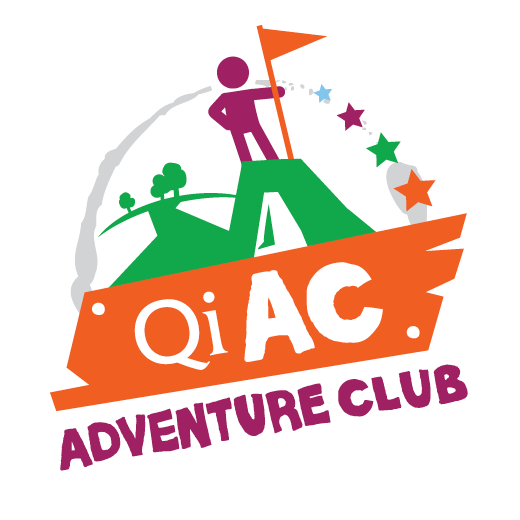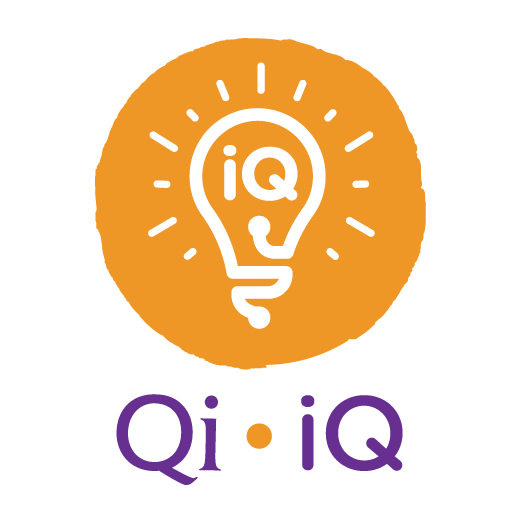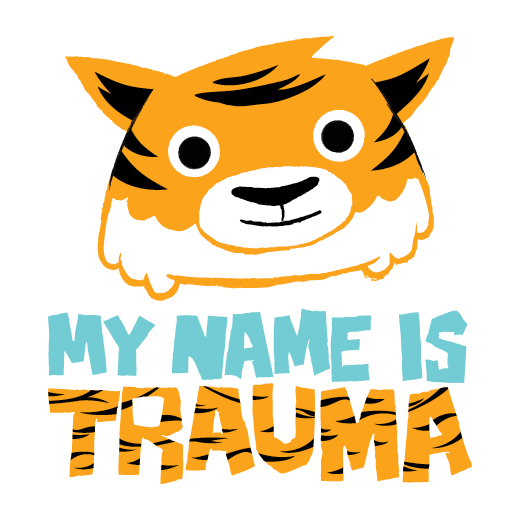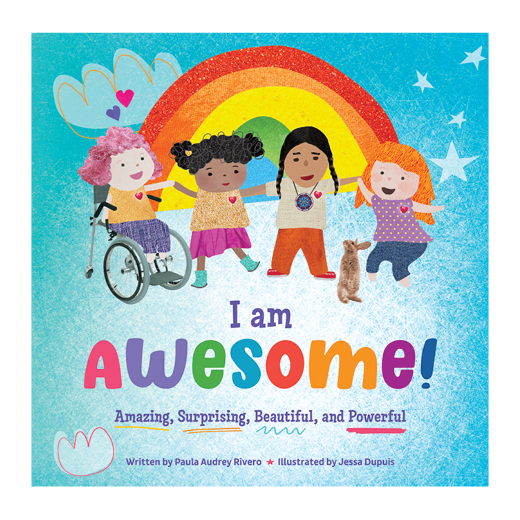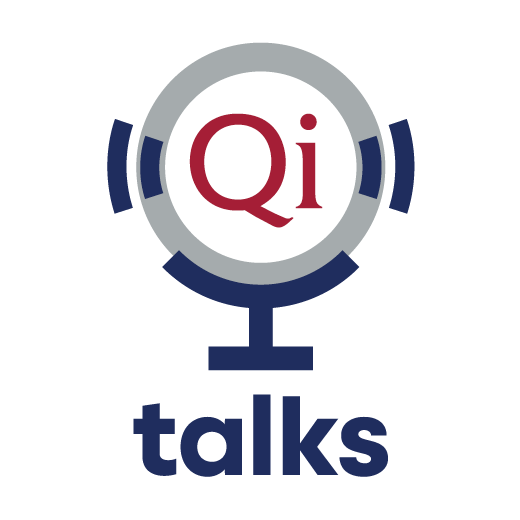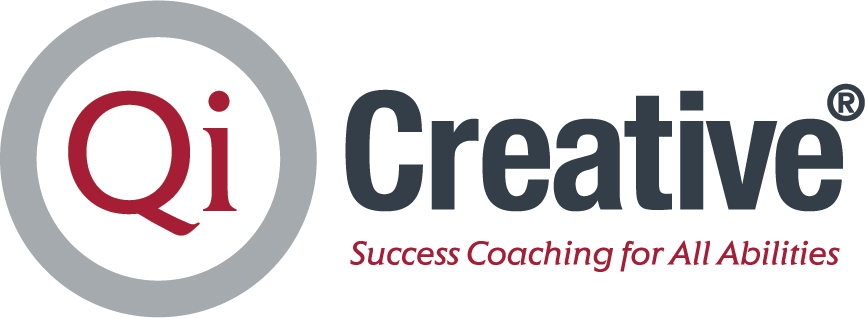World Autism Acceptance Day: Tito Martin-Nemtin's Story
Qi Celebrates World Autism Acceptance Day: An interview with Tito
April is Autism Acceptance Month! For this day, our Communications Director, Deanna, interviewed her good friend Tito about himself, his life, and his experiences and goals. (Disclaimer: This interview was conducted online at an earlier date).
Beachfronts filled with driftwood logs are a common sight among Galiano, the Gulf Islands, and greater Vancouver Island.
Tito and Deanna have been friends for many years, whether gift shopping along the Victoria waterfront, or playing board games like Dungeons and Dragons or Fiasco with his friends in his native Galiano Island.
Tito is a man of many talents, and an advocate for his and others’ neurodiverse experiences. He has emceed events at the Autism’s Own Conference in Vancouver Island since 2012.
Let's start with the basics and introduce yourself!
My name is Tito, and I live and work in Galiano Island, one of the Gulf Islands between the 'main island' Vancouver Island and the 'mainland' Vancouver BC.
Max & Moritz is a popular food truck for locals and ferry-goers to pick up German and Indonesian cuisine. Don’t forget to pick up a bottle of their sauce on your way home!
Galiano Island comes alive from April and continues to be full of activity from late spring and summer to early fall. There are restaurants, places for tourism, catering to tourist markets, and a lot of jobs open up starting in April. It's a balance of way too much work available in the summer and almost nothing going on in the winter.
So I work very, very hard in the summer: I'm probably going to be working 3-4 jobs at any given time, and then along with income assistance, coast on the earnings throughout the winter while saving up for financial goals. I have a food truck gig, a courier service job, a propane station job, and during the tourist season I'll be moving to a resort, where I will handle booking, registration, and cleaning as needed.
What can you tell me about your family?
My parents are retired. My stepmom was the Director of Education for the BBC in the early to mid-nineties; she was there when Teletubbies premiered--she signed on for the Teletubbies to broadcast which I've never quite forgiven her for!
My dad worked for PBS, he also worked for the National Film Board of Canada. He's always been into Documentaries--he was brought to the task of bringing British programming to Canadian audiences. He brought stuff like Riverdance with Michael Flatley overseas in the '90s. Currently he's working with the NFB on a documentary about their founder, John Grierson, how Canadian film flourished during the Second World War, and its purpose and intention in crafting a culture for Canadians to identify with and celebrate.
Tell me about your experiences living with autism—as in depth or as simple as you like.
I was diagnosed when I was 6 years old. And growing up in England, I made a few close friends, but I felt very isolated out there. They still called it Aspergers, and thanks to the theories being taught at the time, was familiar to early childhood development educators in the country. I was able to get a number of tools to help me catch up with other kids, to the point where I was able to come off as a relatively normal, if perhaps eccentric human being, and get through society relatively easily.
“I found a lot of autistic people have agreed with me saying ‘being autistic is like being slightly allergic to the outside world’, because many of us suffer from very odd sensitivities. ”
And for me, my hearing is very sensitive, and having to engage with people is--even if it's something you're enjoying it can be an exhausting experience. And especially group situations where one has to observe multiple people having conversations at once.
Can you tell me a little more about that?
I was staying with my friend Taylor* and partway through hanging out together, Taylor went into their bedroom without a word and wouldn't come out, and texted me saying 'hey, sorry, I've just sort of reached my spoons for the day, my limit for the day, I can't come out and say goodbye. Just wanted to let you know what's going on with me.'
And that's very much an autistic coping mechanism. It is very hard, especially with parents. My stepmother reacted adversely to me one particular time many years ago, after traveling from England to Toronto. I wasn't fed up but I was so tired, I couldn't modulate my tone of voice, so I sounded very abrupt and rude. I was just trying to get my bags and get in, my stepmom was trying to get me to do this and that, and I would reply with 'Yes Sophie*', or 'Fine Sophie'. And then she finally snapped and yelled back 'Don't talk to me like that!' and I responded so negatively to her voice that I walked out of the room, went down to where I was supposed to sleep, I didn't know whether I was allowed to be on the bed, so I just laid down in the middle of the floor unmoving.
And I wasn't looking at my phone, just looking at the wall, just breathing. And then they came down, my dad and stepmom, trying to engage me, and my stepmom had a meltdown, because she thought I was punishing her by not talking.
And that's been a frequent reaction--I tell my parents that when people like me shut down, we are not doing it to spite someone specifically, and yet people make it about them--even though it's not about them.
Full disclose to our readers—Tito and Deanna became friends through playing video games! She asked: How else do you use the Internet in your daily life?
I only really started using the Internet when I was 12. I was introduced to it by a friend--discovering it and realizing that I could talk to people and find people who shared my interests was life changing. I've actually described it to my boss that without the Internet I would not be able to function as well as I have been on this Island. It has given me a community that I can carry around in my pocket, and most of all, it has liberated me from my own physical limitations when it comes to social interaction.
Through the Internet, I have realized about myself--one could have made the assumption that because I shelter myself away from places with loud noises and engaging with lots of people--I don't really do pub crawls, I don't do clubs, I don't do loud parties--people could take away that I'm an introvert, because I shun events with lots of people.
But in reality it's through the Internet that I've really discovered myself, been able to create a Discord server where people talk, I create events where people play games, or watch movies together, and I take an immense amount of pleasure in doing those sorts of things. Having little to no social anxiety helps a lot! Online I don't mind getting in people's faces and trying to get them into doing a cool thing with me. And I do it in such a way that it doesn't annoy them either, which is also a good thing. People like being invited to things, and they like that you went out of your way to personally extend an invitation to them, so there's always that level of flattery.
So I do gain positive energy from social experiences, and it's through the Internet that I'm able to modulate some of the negative aspects of that for me.
What else can you tell me about your life on Galiano? Do you still connect with your parents regularly?
Regarding independent living---from a practical standpoint, it's my experience that having a relationship with someone, no matter who they are, improves by approximately 300% when you're not living with them.
I have a very interesting relationship with my mother right now, because my mail comes through her, she has a car and I don’t, so we have a somewhat codependent relationship even though we live apart--only a 2-5 minute bike from her house, and I’m here frequently walking my dog, I'll hang out on her couch and just be comfortable there, but I don’t live there. I just stay there sometimes.
Right now, I'm able to make enough to not only support myself and have a measure of independence, but also have a social life, a means to express myself creatively. I used to use my computer and the Internet to escape from my problems, but now I’m becoming bored with distraction--I’m really wanting to stretch my creative limbs and work on things that fulfill me in that regard, because my job currently does not allow that. My work allows some fun access to socializing with others, but it doesn’t allow me to express myself as a writer, as a creator, and I’m working towards that and I’m feeling pride that I’m on the way towards that as well.
And I feel like life is just getting better for me in general, on my own merits, being known on the Island, being accepted on the Island, slowly finding my niche, being good at it, being paid at a higher level. Those are very very positive things.
I do struggle sometimes with comparing myself too much with people my age who have made it and are doing things I want to be doing. I studied Journalism in university after game design--I have another friend who has applied to the Weather Factory, a games studio, and I’m a mix of ‘I hope they get that job!’ and ‘man I wish I was doing that!’
But I know it’s bad to downplay yourself, and feel bad for others’ successes.
So you used to study Journalism? How would you describe your educational background? How did you know what you wanted to do?
If there was a course on executive functioning, I would take it.
In my twenties I fell into a depression--I was trying to pursue game design at the Vancouver Film School, a year long program, and I realized that this was not really a program that fit me correctly--because I'm not really a designer.
I want to be a crafter of stories--I wanted to learn how to tell a story, for the purpose of a reader to take control, I was very much influenced by role playing games and I wanted to be a writer at that level, and there's some limited courses for that, but this was very much a program for design, for programming, for 3D modelling, trying to expand on the learning model of 'basement nerds with a dream project doing everything', and autistic people like me, we tend to be super interested in a couple things to the exclusions of others.
I tried to cram 3 to 6 years of knowledge into 1 year, a bunch of multidisciplinary stuff, and as I fell behind I started to have a break of confidence. I didn't tell anyone I lived with autism. I was 18, and I had this mental block that I didn't know how to overcome, people didn't know what was wrong with me, or how to explain it. I felt like I was trying to play on the same team as all my peers, and I remember using the word failure a lot.
Because of all that, and because I didn't get into the games industry--I would have had a hard time anyway, I graduated in 2008 right before the recession. Less than 50% of my graduating class got jobs as it is--I spent so much of my twenties feeling like I'd fallen through the cracks of the system, and I tried to get jobs here and there, but I was still working while depressed—I tried jobs programs with limited success--it was only through my own initiative looking for work, and getting offered a job where I grew up, that I was able to move, slowly get financial aid, and sort of crawl out of this hole and become more of a functioning human being that could look at themselves in the mirror and like what they saw.
Thank you for sharing that. It sounds like you’ve been through a lot. Is there a lot of support for mental health on the Gulf Islands?
Honestly, there is almost zero mental health support out here. There is a guy that comes to Galiano, his waitlist is almost a year long--he comes from Vancouver Island every couple of weeks, and he's got a whole list of people.
I had to call a crisis help line once. The person on the end was trying to refer me out, but they found nothing—they didn’t have any way to refer me to someone, and it was a real eye opener that we just lack—not only for people like me, but for people who need any kind of mental health support.
I had a psychiatrist who offered talk therapy, and it was good to talk to her while going through my medications, but she retired last year in June. So what little things are available here are dwindling quickly, and they're not being replaced quickly enough.
Tell me about your experiences advocating for yourself, and your beliefs.
There's more that can and should be done across Canada. Canada may have extensive social policies, but as a country I believe we are deeply suspicious of those who are served by those social policies.
For the purpose of getting to the PWD program [British Columbia's Persons With Disabilities program], I had to fill out documentation, putting forward the worst version of myself, the version of myself that can’t get out of bed in the morning, that can’t get groceries, that can’t function without aid, that experienced a meltdown on public transit.
I had to put that on paper, send it to a faceless entity, wait 6 months, get rejected, and have to appeal. That is the system in British Columbia, and that is well understood by the organizations that help fast track people with disabilities, they know the system is made intentionally hard for people to receive aid. So it’s not just Alberta, even in British Columbia, there are plenty of concerns being worked on.
And there’s always more to be done, especially for those who have fallen through the cracks, who get written off, to get properly examined by a trained person like I was as a kid, who found the telltale signs of autism and could recognize it, and were able to make a game plan to deal with it.
I participate in Autism's Own Conference, a conference run voluntarily by people living with autism. I emcee their events, have been doing them since 2012. It's dedicated to guest appearances of people living with autism.
We had a really interesting and harrowing panel involving high school students living with autism, and it was so heartbreaking--I remember calling my mom during the worst moments of my game design program, and yet I still had the presence of mind to think 'well, at least I'm not in high school anymore', because I still felt like my life at that time was still preferable to what I went through in high school. I can laugh a little about it nowadays.
Since it's Autism Acceptance Month, what are some things that you would want to raise awareness about?
There’s a big misnomer that autism cuts a child off from family.
That it’s a soul stealer, that—there’s actually some theory that the ‘changeling myth’ of stealing a child and replacing it with a false child might have been an early form of diagnosing ASD. If you’ve ever read Neurotribes, there’s one case where a child would not stop crying until the mother realized that they were responding to a certain stimulus--once she started wearing only one type of clothing, one dress, that calmed her child down.
“We are sensitive in ways that have nothing to do with anyone else.”
The amount of change, the amount of stimulus was too much, they couldn’t bear to see their mother in different coloured clothes, and to just understand that we’re not cutting ourselves off from the world, we are doing everything in our power to put up barriers for a world that is in some ways hostile for us to live in—we are sensitive in ways that have nothing to do with anyone else, and if we are given the means to communicate what we want and need, we are able to flourish.
A clear example of that would be when Taylor notified me through text that they couldn’t continue to communicate with me, or when I tried to text my parents what was going on instead of vocalizing. Your child has not been abducted, your child is not trying to hurt you, your child is trying to communicate as best they can within their limitations. And I hope that they find a way to reach some kind of consensus.
I don’t know if I want to be 'celebrated'. Because on days like today, with a little known condition like mine, whenever there’s a new story about it, it’s one of two things: A celebration, or a call to action.
And I try to put myself into one of those boxes: 'Am I a call of help?' 'Am I a celebration for navigating the system to give people the impression that I’m well-adjusted?'
I don’t want a participation trophy. I want me and people like me to participate on relatively the same playing field and be able to find our way with as much help as we need, and be able to be supported in what we want to do in life, and not have to work so hard, not only to self-advocate, which all autistic people must learn to do in order to get by, but also just be left alone in some other ways.
While April 2 is World Autism Acceptance Day, all April long is World Autism Acceptance Month. We hope Tito's story is an informative start!
*Some names and identifying details have been changed to protect the privacy of individuals.
